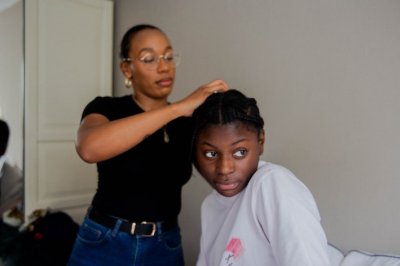Passivity in Relationships- Is Being “Laid Back” Ruining Everything?

photo by Tom Morel
by Andrea M. Darcy
Opposites attract, right? In some ways, yes. A relationship can have one person who is more assertive than the other, and this can work.
But too much passivity in relationships is another story.
What is passivity in relationships?
Passivity means you do not exert yourself in your relationships, meaning you leave things to the other person. This can include decisions, ideas, and planning, as well as even things like topics of conversations.
You do not take the lead but are the constant follower.
(Note that it doesn’t have to mean anything about your sex life, which is a different matter. You can be very passive in all parts of your relationship but then have an equal sex life or even prefer to be dominant in this one area.)
Why is passivity a big deal?
It blocks intimacy. If you are never stepping up to the plate in a relationship, you are never actually sharing who you are. You just mirror the other person. And that other person can’t connect with a you that is so hidden they aren’t sure what it is.
And passivity can lead to a lot of resentment. No matter how kind and agreeable you might come across, the truth is you are being lazy in the relationship and leaving all to the other person, even the emotional work. Which can start to feel like quite the burden for them. Bit by bit their bitterness will grow.
And then you can start to feel resentful, too. You want them to make decisions, but then feel resentful if it’s not what you really wanted.
I’m just a laid back, zen person

By: Elvert Barnes
When we accept things, we actually face them, which is a sort of action. Passivity in relationships means you tend to avoid things.
We don’t sit with a crying or upset partner or friend, holding space for them or helping them find ways forward. We tend to back off, call it ‘giving them space’, and hope they get over it. At which point we’ll show up again, pretending things are fine and the conflict never happened. Sound familiar?
Signs you are too passive in relationships
You don’t need to have all of the signs below to have an issue with being too passive in friendships, relationships, and with family. But if a few of the below sound a bit too familiar, it’s worth seeking some support over how you relate.
1. You mumble or don’t finish sentences.
You have a tendency trail off mid-response when asked a question. Perhaps you aren’t really sure of your opinion, or it feels too much effort to think it through and explain. The other person can finish the conversation for you.
2. You tend to say, ‘whatever you think’.
This is a way to deflect having to make choices or be responsible for anything.
3. You are anxious if the other person isn’t happy.
Passivity can be rooted in codependency. This means your modus operandi is to please others, and this is how you form an identity, instead of sourcing it from within.

photo by Shingi Rice
4. You take on the habits and interests of the other person.
Part of codependency can be that you mould yourself to the other person. Your hobbies, interests, and even things like the way you dress change depending on who you are dating.
5. You rarely if ever say no.
Saying no requires taking a stand, and taking responsibility for that stand. If you suffer form passivity, this would feel overwhelming. It’s just easier to do what others want. Of course sometimes you feel resentful, but you find ways to distract yourself.
You might also sometimes feel like things are going too fast. When we don’t say no, we set no boundaries, and are caught up in someone else’s current.
6. You get your friends or even parents to decide for you.
If a partner refuses to decide something for you but insists you make the call, you still don’t stand up and do so. Instead, you call friends or family and do what they tell you to do.
A clear sign your problem with passivity arises from the ways you were parented is if you still, as an adult, turn to your Mom or Dad for answers to life’s issues. Or never dare do things they don’t approve of.
7. You leave the other person to do what they want.
Sounds nice, right? You don’t interfere, isn’t that a good thing? Not really, if it’s also an excuse to not take interest.
Research clearly shows that healthy relationships need displays of support.
A study gave participants ten minutes to do a tutorial on digital photography, during which they received texts they thought were from their partners in another room. The participants who received texts showing interest, support, and validation for their experience (active response) rated their relationships as better than the participants who just received texts that didn’t really comment on what they were attempting to do (passive response).
8. If the other person is upset, you just lay low for awhile or offer platitudes.
How do you deal with conflict? Do you face it head on and discuss things? Or is the truth more that you tend to withdraw, and hope that it all passes? Or apply platitudes like ‘it will be fine, stop stressing’ to avoid having to actually be involved?
A clear sign there is a problem here is if the other person constantly tells you that you are avoiding them and it’s upsetting.
9. The other person is constantly frustrated.
- Do you have a tendency to annoy everyone around you?
- Then make a joke out of it, call the others ‘uptight’?
- Do friends moan you are too lazy?
- Has a romantic partner ever screamed they are sick of parenting you?
These can all be signs you are being too passive in your relationships.
10. If you are very, very honest, you like the idea of being ‘saved’ by someone.
Ask yourself, “What would it feel like if someone came along and just saved the day, fixing my life for me?” If you feel a rush or relief at this thought, then you might have the ‘Cinderella complex’.
You are secretly looking for a saviour, even if you consciously know that the only person who can fix your messy life is you.
But I just like being the passive one in a relationship and it is working
Sometimes, one person is fairly passive in the relationship, but somehow a relationship works and is healthy.
If this is the case, then you will not have issues with passivity elsewhere in your life, and your partner will be at ease with you.
Not sure this is you? Ask the following questions:
- Do I know who I am? Or do I feel lost without a partner?
- Am I comfortable with who I am, or do I wish I was someone else?
- Can I easily take care of myself when alone? Or do I feel a bit lost at sea?
- Am I confident in my work, finances, social life, or am I a bit lost in general?
- Do I feel the master of my life, or am I deep down waiting to be ‘saved’?
- Can I handle conflict and communicate what I think or feel? Or do I hide?
How do I deal with passivity in relationships?
Again, passivity in relationships can have deep roots. It can come from parents who were too controlling, or babied you and didn’t let you make mistakes and learn. Or a parent who only loved you if you were ‘good’, teaching you that you only have worth if you please others, aka, codependency.
So just ‘deciding’ to be a more active participant in your relationships won’t work. Habits of behaviour are deeply engrained in our brains. We tend to need support to break through. This can definitely start with self-help. There are great books and self-guided courses out there for things like codependency.
To really make changes, it’s recommended to have support. A coach, counsellor or psychotherapist creates a safe space for us to take a good look at ourselves. They can help you see new perspectives and learn new ways of being and relating that heal your relationships.
Time to stop being so passive and start being your genuine, interesting self? We connect you with friendly, highly-rated expert therapists in offices across central London. Or use our booking platform now to find your perfect UK-wide registered therapist or online counsellor.
Still have a question about passivity in relationships? Use the comment box below.
 Andrea M. Darcy is the lead writer of Harley Therapy, and has had to learn in life to speak up for herself in relationships. She’s written thousands of mental health articles, and has training in person centred therapy and coaching. Find her on Linkedin and Twitter.
Andrea M. Darcy is the lead writer of Harley Therapy, and has had to learn in life to speak up for herself in relationships. She’s written thousands of mental health articles, and has training in person centred therapy and coaching. Find her on Linkedin and Twitter.




